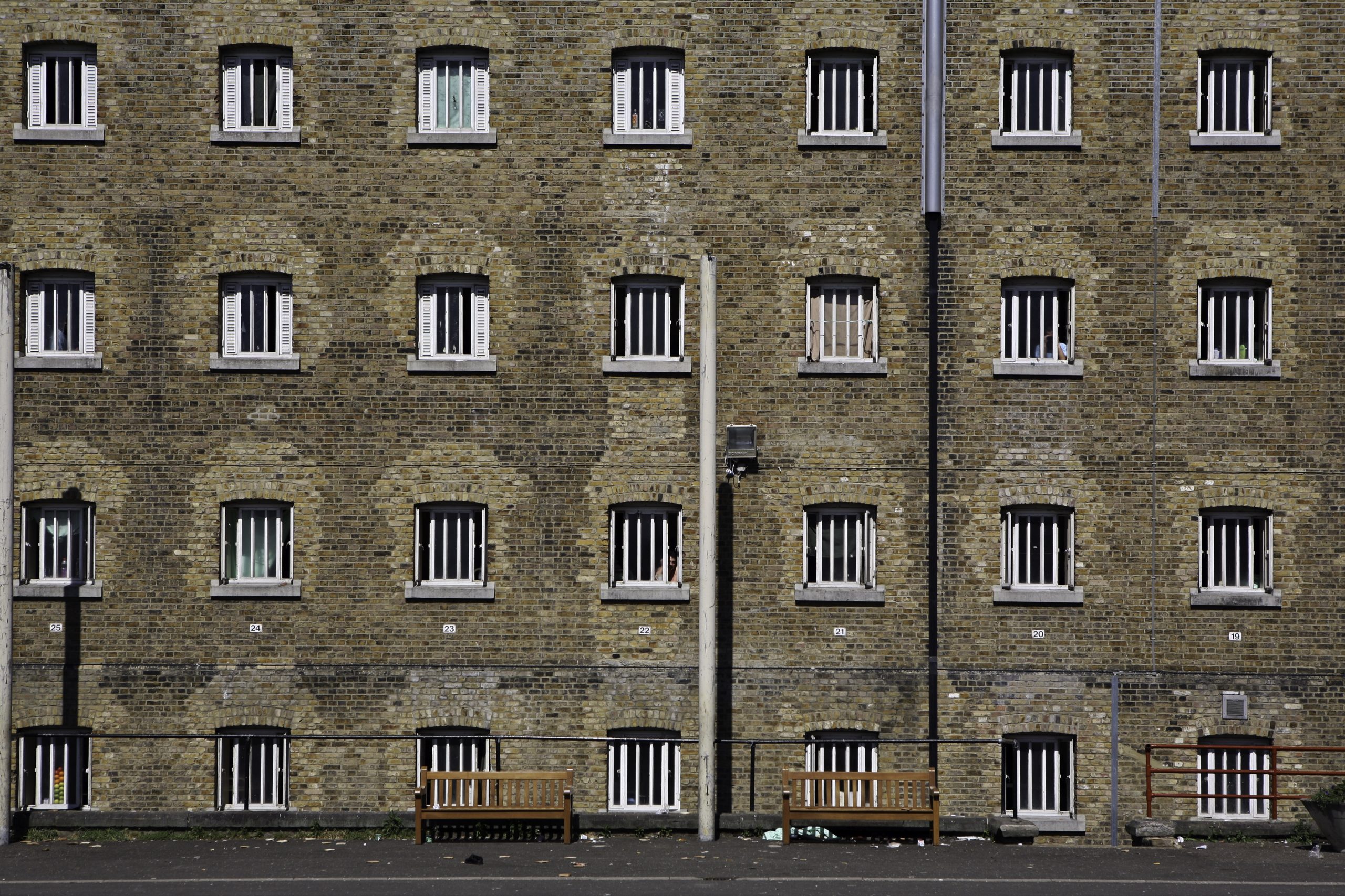The government’s recently announced plan to address the prison capacity crisis by renting space abroad have been widely derided as ‘half-baked’, ‘shameful’ and likely to cause ‘significant levels of isolation and trauma’. But as yet there has been little attention to the likely lower standards of accountability that will come the treatment of anyone held overseas. Pic: Andy Aitchison
The UK is one of 77 countries around the world to have designated a National Preventive Mechanism (NPM), that is, a body responsible for preventing torture and ill treatment in all places of detention in line with international human rights standards set under the Optional Protocol to the Convention Against Torture (OPCAT). Despite being one of the early adopters of this international treaty, the UK government has consistently refused to create a legislative underpinning for its NPM, rendering it inadequate in the eyes of the international human rights regime it is supposed to uphold. Instead, the UK NPM, a loosely-bound network of 21 statutory bodies that inspect, monitor or visit places of detention, relies on the statutory powers and good will of its members to undertake its work.
Why is this relevant to the proposed rental of overseas prison places? It is relevant because having ratified OPCAT, the UK has agreed to be bound by the object and purpose of the treaty, which in this instance is to ensure rigorous standards of detention monitoring in order to prevent any form of ill treatment or torture. It should apply to any places where individuals are deprived of their liberty under the state’s jurisdiction and control.
There is little detail available of the plans so far, so we have no idea whether government ministers have these considerations in mind. But knowing that, despite years of taking a leading role in international torture prevention efforts, the UK government have more recently lost any claim to international leadership in human rights generally or torture prevention specifically, I suspect this is unlikely.
The UK has a deeply-embedded culture of opening up places of detention to scrutiny, and the role of HM Inspectorate of Prisons and its counterparts in Scotland and Northern Ireland are cited worldwide as models of good practice for prison oversight: these bodies are all part of the UK’s National Preventive Mechanism. So how then, will the government ensure its National Preventive Mechanism can apply the required standard of rigorous scrutiny to these overseas arrangements?
In the first instance, establishing who will be responsible for monitoring the treatment and conditions of those held in rented prison cells overseas is crucial. The United Nations Subcommittee on Prevention of Torture have set out clearly that this is the responsibility of the ‘sending’ state, even where the ‘receiving’ state has existing detention monitoring arrangements. Presumably HM Inspectorate of Prisons will be given this role, but with what statutory basis and practical ability to do so? Its other overseas inspections are conducted without any statutory footing, ‘by invitation’, which is a significant weakness. And there is precedent: when HMIP sought to include powers to inspect military detention overseas into its legislation, to enable it to take forward one of the recommendations of the Baha Mousa inquiry, the government turned this down.
Secondly, how will best practice for detention monitoring be possible in the context of overseas detention. What about the specialist input to inspections provided by CQC and Ofsted among others, and the second ‘layer’ of monitoring provided by the Independent Monitoring Boards? What about ensuring scrutiny of transport arrangements by which prisoners are transferred to overseas prisons, an area of significant risk. If it is given the role, will it be possible for HM Inspectorate of Prisons to conduct inspections unannounced, to be able to move around the prison unaccompanied, to access information systems and crucial records such as those relating to the use of force? If not, this will be another weakness.
Thirdly, the purpose of independent detention monitoring such as that provided by HMIP is to act as a preventive tool against ill treatment and torture. The reports of OPCAT-compliant detention monitors must be published, with recommendations for change and, above all, they must be acted upon. But whose responsibility will it be to act upon these recommendations, and how will they be held to account if they do not? Will the UK government really be able to hold receiving states to its own standards, while also relying on their willingness to deal with our homemade prison crisis?
Fourthly, the government’s first public announcement of this programme promises that the facilities, regime and rehabilitation in these overseas prisons must meet ‘British standards’, and the conditions will be ‘to the same standards as prisons in England and Wales’. Given the catalogue of critical reports into standards in prisons in England and Wales made by prison inspectors and visitors, this is hardly a reassuring claim to make. But it is also silent on crucial ‘treatment’ issues – use of force, segregation, adjudications, healthcare – will these operate to the same procedures and standards as in England and Wales, with staff trained accordingly?
Looking beyond the role of prison inspectors, there are other essential oversight functions that play a role in ensuring accountability for what happens behind the closed doors of UK prisons. Will the Prison and Probation Ombudsman be able to investigate complaints and any deaths in custody in these rented prison spaces, will coroners be able to discharge their duties under Article 2 (the right to life) of the Human Rights Act to provide thorough and effective investigation of any deaths? What if any role will UK regulatory bodies have to ensure the safety of healthcare provided?
Deeply relevant to these issues is the long-standing resistance by successive UK governments to the extra-territorial application of its international human rights treaty obligations. In its last review under the UN Convention Against Torture, the government again rejected the principle that this treaty does not ‘have extra-territorial effect’. The current legal understanding of how the Human Rights Act and the European Convention on Human Rights should apply extra-territorially was deemed ‘troubling’ and ‘unsatisfactory’ by the government’s Independent Human Rights Act Review. In response, the Joint Committee on Human Rights issued a cautionary message: ‘Given the approach already taken in the Overseas Operations Act, it seems highly likely that any further changes envisaged by the Government would be intended to limit the extra-territorial reach of the HRA rather than to extend it.’
This key aspect of the similar, now concluded arrangement between Norway and the Netherlands has so far been overlooked. Among the many criticisms of the arrangements made by Norwegian Parliamentary Ombudsman and NPM – blanket rules on restraint during transfer, healthcare rights, the ability to receive visits – was the damning conclusion that ‘inmates who are transferred to Norgerhaven Prison are not guaranteed adequate protection against torture and inhuman or degrading treatment’. It risked, they said, creating a ‘legal vacuum’ for the protection of human rights ‘as a result of the unclear division of responsibility between two states’.
There are many grounds on which to question the government’s plans, not least its failure to take measures to address the unrelenting rise of the prison population. But if these plans do go ahead, we must ensure that they are backed up by strong and accountable legal safeguards otherwise the UK risks breaching its obligations to prevent ill treatment, creating different and unaccountable standards for those held outside the UK and opening up a ‘legal vacuum’ for the protection of human rights.




